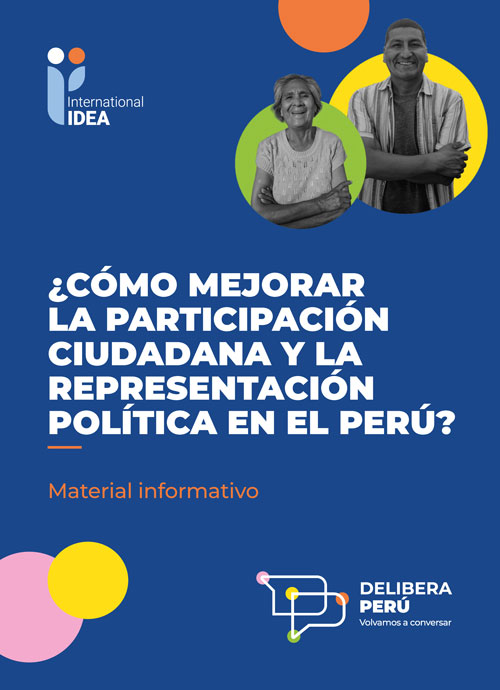This Brief examines the impact of Covid-19 on systems of government, emergency response and opposition members in legislatures and their ability to maintain democratic principles. Drawing on insights from five countries as case studies, Malaysia, New Zealand, Papua New Guinea, the Republic of Korea and Singapore, this Brief finds that emergency responses that restrict the capacity of the legislature erode the ability of opposition members to contribute.
Search
Region
Country
Type
When political leaders return from their unusually hot summer holidays, they will soon face the spectre of an exceptionally cold winter.
With gas and oil prices skyrocketing due to the war in Ukraine, energy bills will leave millions of citizens struggling to stay warm and make ends meet.
Idirashe Dongo is a councillor for ward 30 in Zibagwe Rural District Council. “I am in my first term of office, and being new in this local governance business, I have learnt a lot from the exposure I have received thus far”.
She attributes her success to Gender Links, who have played a pivotal role in supporting and equipping her with essential skills to fully participate in local governance processes.
Resta Dzinyangoma, the council Vice Chairperson of Murehwa Rural District Council, has been a councillor since 2004. “I was very young when I got into the council, and it was not easy since it was a male dominated domain. When I got elected into the council, I was already doing gender work in my community, which I have continued doing to date.”
Women politicians in Zimbabwe have demonstrated an increased ability to do a gendered analysis and evaluation of policies that govern the activities of the political arena.
This was evidenced by the efforts made by female politicians through Dialogue Sessions with Parliament and electoral management bodies to ensure that the 30 per cent quota extended to women at the local authority level is fully operational before the 2023 general elections.
In South Sudan, Africa's youngest nation, women's political participation remains low when there are calls to have more women in positions of power globally. The Republic of South Sudan gained its independence on the 9th of July 2011 but slid into political violence within barely two years of its existence.
Senegal is among the countries with a high women's political participation in Africa and the world. This has been necessitated by The 2010 Gender Parity, which resulted in Senegal rising to the seventh position in the world regarding women's representation in Parliament, leading the way for equality, specifically in West Africa.
Malawi has pledged to move in the right direction to achieve gender equality in the political spaces. The second quarter of 2022 saw the President of Malawi, Lazarus Chakwera, renewing his commitment to working towards 50/50 representation in Parliament.
A general observation of the Zimbabwe, Eswatini and Botswana media landscape shows an improved positive coverage of women’s political participation in print and electronic media. An in-depth analysis of the stories published in 2020 in the four countries shows reassuring efforts by the media to prioritise gender-neutral coverage meant to generate an environment of equality in the political field.
Africa's efforts for gender parity in governance might finally yield positive results amid revelations that several countries holding elections this year will field more female candidates than before.
Over the last 100 years, research shows that women’s role in the army has changed fast and, in some cases, quicker- than society has changed. That development has been witnessed globally- including in Africa, where a growing number of states are now appointing women to head their defence ministries.
Botswana is undergoing a historic Constitutional Amendment, an exercise that is expected to usher women with a window of opportunity for gender parity in governance.
Women politicians and other key stakeholders came together and called for the constitutional review and the inclusion of electoral provisions that promote women’s political participation.
Last month, the National Assembly in the Democratic Republic of Congo (DRC) voted for a new law that waives deposit fees for political parties that submit a candidacy list comprising 50 percent women, a move to increase women’s political participation in the country.
The Economic Community of West African States Female Parliamentarians Association (ECOFEPA) launched the first edition of the Women and Girls Leadership Symposium under the theme “Unleashing the Potentials of Women and Girls in Politics and Entrepreneurship” last month at the ECOWAS Parliament in Abuja.
Women's groups in Ivory Coast had seized the Women Political Participation initiative to use it as an opportunity to change the country's history characterized by female exclusion in the political spheres.
Citizens are increasingly becoming optimistic that the occupation of key decision-making positions at the council level will result in good service provision. No doubt, Local Authorities are the providers of basic services like health, water, waste management and housing.
The Government of Tanzania has adopted policies that advance gender equality and youth inclusion in a supportive enabling environment. However, the legal and regulatory framework and the sector-specific policies of government ministries and independent departments have yet to be aligned with these policies.
Kenya is set to bring to an end 60 years of male dominance in politics following the nomination of a female candidate to become the country's first ever deputy president in this year's election.
Martha Karua was named as the preferred running mate of Kenya's opposition leader and former Prime Minister Raila Odinga, who is running for the presidency. If she wins, she is set to become the first woman to occupy the office of deputy president in this year's presidential elections.
